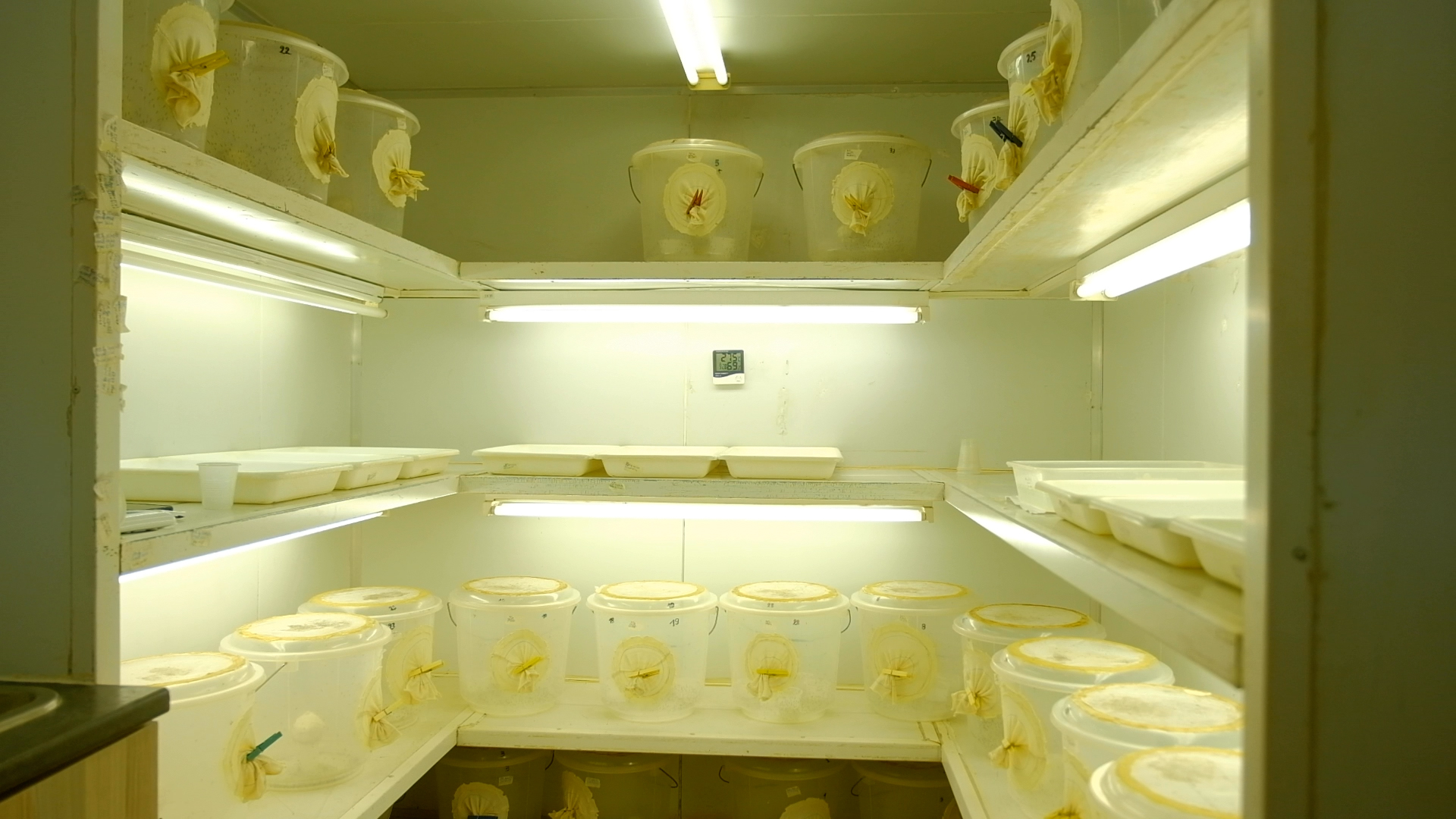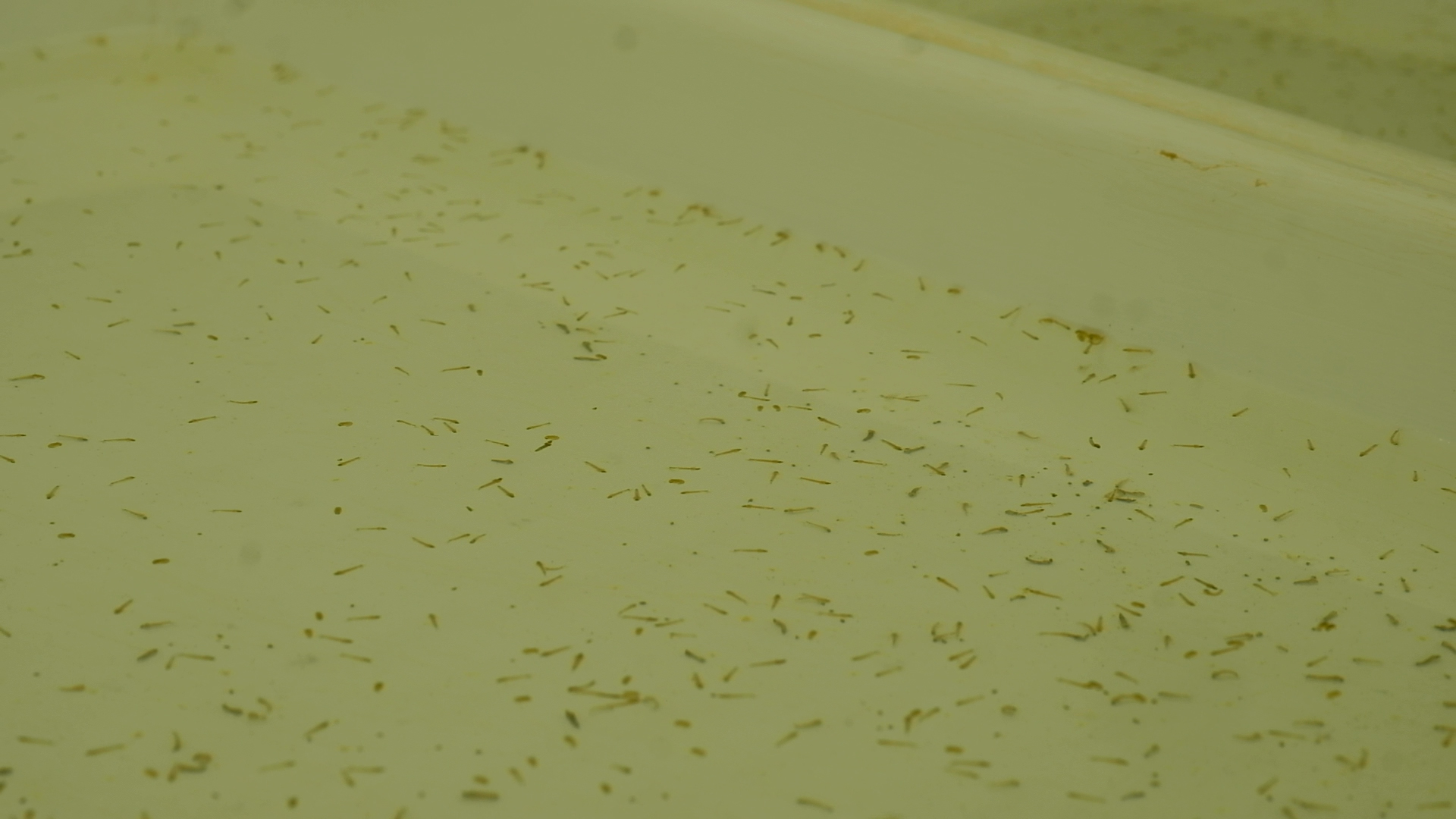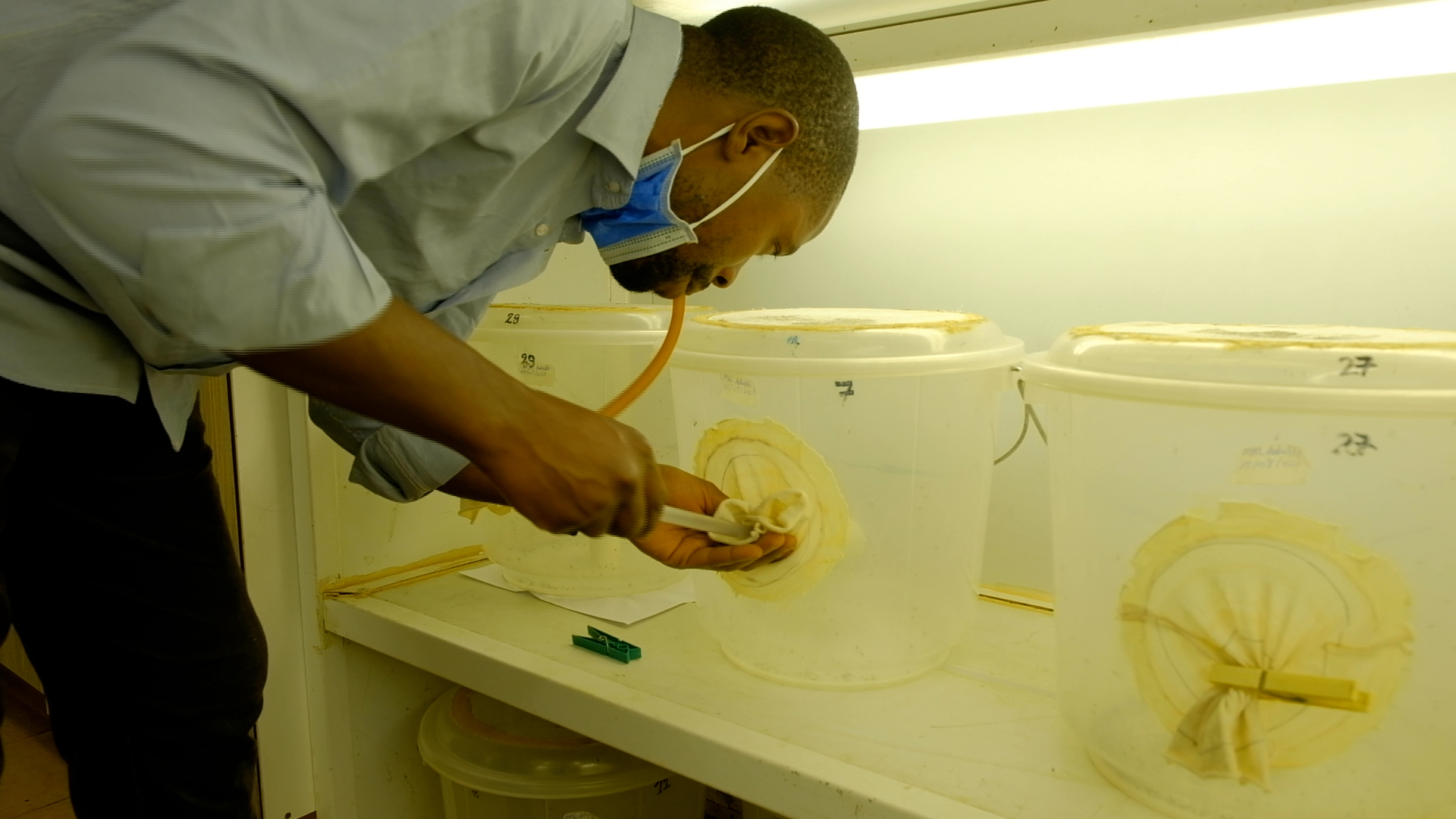
The inside of the entomology laboratory built by Tenke Fungurume Mining firm in Lualaba Province, southeastern Democratic Republic of the Congo. Chris Ocamringa/CGTN
The inside of the entomology laboratory built by Tenke Fungurume Mining firm in Lualaba Province, southeastern Democratic Republic of the Congo. Chris Ocamringa/CGTN
A Chinese-owned mining firm has constructed a modern laboratory to study malaria parasites in the southeast of the Democratic Republic of the Congo (DRC).
Malaria is a leading cause of death in the central African nation. The lab aims to use its research to help reduce the high prevalence of the disease in the region.
The lab was built by Chinese mining firm Tenke Fungurume – one of the largest copper and cobalt producers in the DRC.

The Tenke Fungurume copper and cobalt mine. Chris Ocamringa/CGTN
The Tenke Fungurume copper and cobalt mine. Chris Ocamringa/CGTN
According to the World Health Organization (WHO), the DRC has the second highest number of malaria cases and deaths globally after Nigeria. More than 13,000 people are reported to have died of malaria in 2019, most of whom were children under 5 years old.
The disease is caused by parasites transmitted to people through mosquito bites.

Malaria larvae placed in a dish used for studying them. Chris Ocamringa/CGTN
Malaria larvae placed in a dish used for studying them. Chris Ocamringa/CGTN
DRC researchers say the lab has helped them find better ways of reducing the high incidence of malaria.
"Before the lab was built, we were using insecticides to kill mosquitoes, but malaria cases still remained high," said Faustin Mumba Ngoy, a vector control assistant from the DRC government. "Because the mosquitoes had become resistant to the insecticide."

DRC vector control assistant Faustin Mumba studies malaria parasites inside the Tenke Fungurume malaria laboratory in Lualaba Province, DRC. Chris Ocamringa/CGTN
DRC vector control assistant Faustin Mumba studies malaria parasites inside the Tenke Fungurume malaria laboratory in Lualaba Province, DRC. Chris Ocamringa/CGTN
After conducting studies in the new laboratory, officials discovered that the mosquitoes had developed resistance to the insecticides. They then recommended other interventions to reduce malaria deaths in the region and the country.
The DRC government's efforts to reduce the high prevalence of malaria were also boosted by the WHO's recommendation for the widespread use of a vaccine named "RTS,S" that has proved effective in preventing malaria deaths among children.
The scientific breakthroughs have raised hopes of preventing malaria deaths in the DRC.
In 2019, African leaders met in the Ethiopian capital of Addis Ababa and committed to allocate more funds to eliminate malaria by 2030. But that goal is still far from reach for the DRC and other sub-Saharan African countries.

